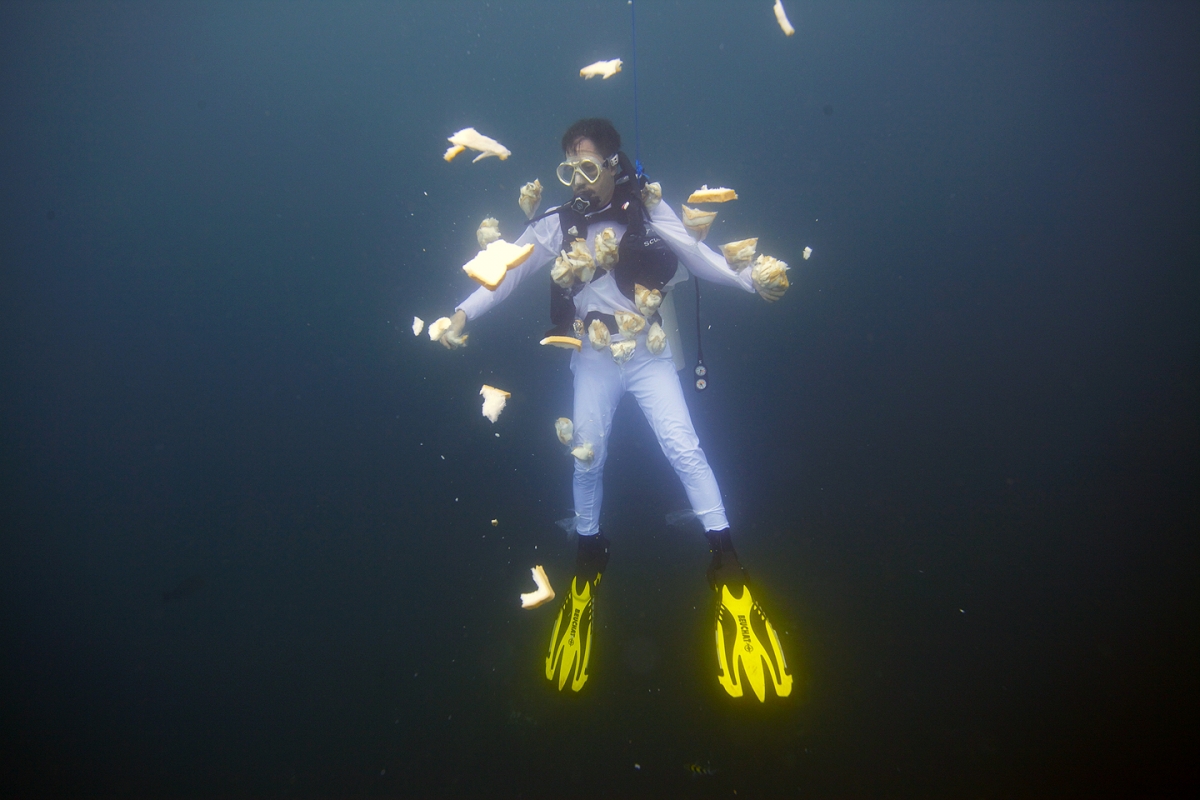To dance on an equal footing
February 28, 2021

Accompanying text
Text by Caroline Monnet
According to Anishinaabe tradition, the universe was created on the back of a turtle. The turtle sustains the world. It embodies identity, culture, self-reliance and a deep respect for the natural environment. The turtle is at the centre of all of creation and strengthens our special relationship with the Earth and all of its creatures. Nowadays, unfortunately, at the planetary level, our vibrational frequencies have become disconnected and our gratitude towards the natural world has crumbled away.
The bold and generous approach behind the project SVP nourrir les animaux (Please Feed the Animals) humbly assumes the position of intermediary in an act of reconciliation between animals and humans. If you have ever come across Stefan St-Laurent, the multidisciplinary artist and independent curator of contemporary art, you no doubt know of his deep attachment to all forms of life and his love for the things that surround him. His engaging and empathetic personality and his awareness of the well-being of others always put people at ease. In his eyes, differences do not exist, categories are discarded and all life forms dance on an equal footing. The artist invites us to give something back to the next living thing, no matter its form, status or species, and to mobilize in a collective upwelling.
Through performative acts, St-Laurent offers his physical and metaphorical body to the animals. He strips himself of his ego to attain a form of purity and complete abandonment which allows him, through sensibility and piercing intuition, to enter into true communion with the animal world. This symbolic act, carried out like a sacred ritual, holds out a glimmer of hope for the redemption of the human race.
Through his understanding of the life cycle and the interconnectedness of all living things, the artist spurns the supremacy of humans over the rest of the natural world and thus rejects the Western heritage of capitalistic resource exploitation. You can sense in his work a quest for equality in a broader sense, which includes defending the rights of women or racialized persons. For St-Laurent, everything is interrelated; therefore, all forms of violence are equatable.
St-Laurent’s artistic manifestations are all the more significant in these times where our proximity to the animal world is felt more clearly than ever. Throughout the world, animals and humans are in worsening conflicts and we need to apply our intellect to the search for ways to resolve them. We need to hold ourselves accountable for our treatment of other living things on our shared planet and understand that the survival of future generations depends on our foresight about the sustainability of our consumer behaviours.
St-Laurent poses the fundamental question: is it possible for us to intervene ethically in the animal and natural world without taking something in return? Can we do better? Can we do things differently?
